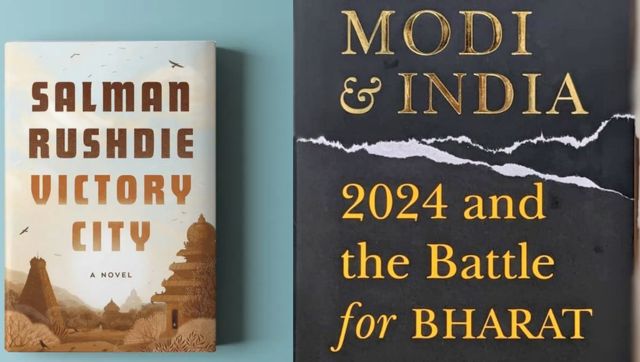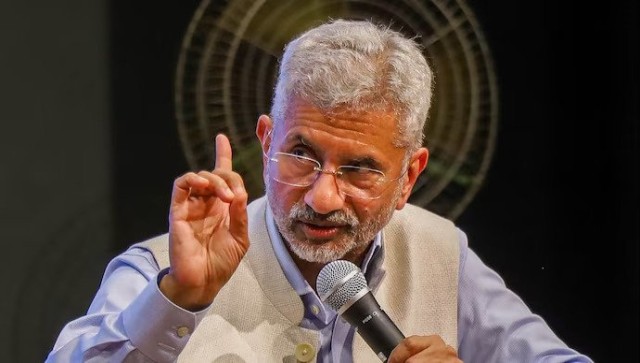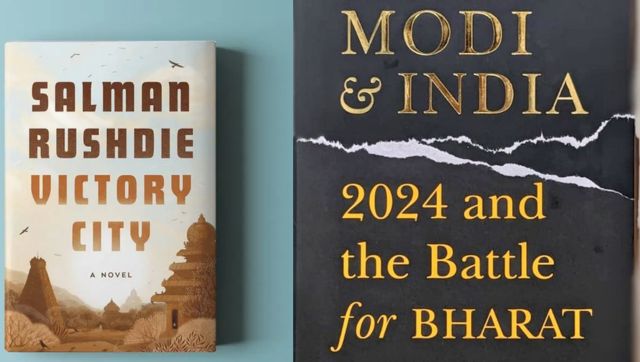The sky is falling. The Americans are coming.
The announcement that the Man Booker prize will be opening up to American writers as well has thrown the Brits into a royal tizzy.
Writing for The Guardian , novelist and one-time Booker judge, Philip Hensher quotes a well-known London agent as saying “Well, that’s the end of the Booker then.”
Hensher says the American juggernaut cannot but dominate. “Not through excellence, necessarily, but simply through an economic super-power exerting its own literary tastes, just as the British empire imposed the idea that Shakespeare was the greatest writer who ever lived throughout its 19th century colonies.”
Already this year, even before the new rules kick in, Jhumpa Lahiri, born in London, is on the shortlist for both the Man Booker and the National Book Award in the US.
Next year that could be a Jonathan Franzen leading to more and more tantalizing prospects of a literary Grand Slam.
But is the fear of the Ugly American greedily gobbling up the literary pie entirely founded in fact?
“It will change the nature of the prize, no question,” says William Dalrymple, author and director of the Jaipur Literature Festival. But Dalrymple points out that the Samuel Johnson Prize, the richest British prize for non-fiction, is already open to Americans.
“That has not led to an exodus to the Americans,” says Dalrymple. The winners in the last few years have included Canadian Wade Davis writing about Mount Everest, Dutch Frank Diktötter on the Great Chinese Famine as well as American Rajiv Chandrasekharan for his book on the Green Zone in Baghdad during the Iraq war.
The Booker is more famous than Samuel Johnson Prize. So any change in its rules causes a furor. Also the Booker was never a national prize, but symbolised a special relationship between Britain and its erstwhile colonies.
“We ruined you for 300 years and now here’s a Booker Prize you can get,” chuckles novelist and photographer Siddharth Dhanvant Shanghvi. But he says while the Man Booker might want to pump up its brand, “you don’t want to become the Nike of book awards, so broad-based that you lose the specificity of the charm you built up over 35 years.”
The problem isn’t necessarily the Booker looking west. It’s that every prize has its own complicated web of eligibility. “Like a Geneva Convention for the rules of war, we need an international convention of literary prizes I think,” laughs Dalrymple. He says, with very British understatement, he understands why all this is “slightly irritating” to the Brits. “Many British prizes are open but there is literary protectionism everywhere else.”
As Hensher rightly points out, the Americans have no intention of opening up their prizes to the rest of the world. Like the fabled baseball World Series, Americans are happy to play each other, and occasionally Canada and pretend it’s the world. The National Book Critics Circle Award is one of the only major American awards open to writers from any country as long as they have been published in the United States.
Whether the new Booker rules will make it easier for an Indian writer writing in English in India to make it into the long list is anyone’s guess. Hensher clearly thinks not. American publishers tend not to favour novels that don’t have a clear American connection, or as Hensher succinctly puts it “placing the exotic places in the reassuring context of an American suburb.”
Of the four authors of Indian origin who have won the Booker, three – Salman Rushdie, Arundhati Roy, Aravind Adiga – set their books entirely in the subcontinent. Only Kiran Desai’s The Inheritance of Loss switched back and forth between India and the United States. Before his Booker win, Adiga, in fact, had a very difficult time getting media in the US interested in White Tiger – a book that had no American connection even though it was set in Gurgaon, India’s Little America.
But that does not mean future Booker judges will be as parochial as American publishers and American media. And those differences in taste can cut both ways. “(Samuel Johnson) judges tend not to be interested in those huge multi-volume biographies of John Adams that Americans seem to love,” says Dalrymple.
If anything, this entire kerfuffle points out the arbitrariness of trying to capture into tidy boxes an increasingly fluid and mixed up world where a Jhumpa Lahiri is ethnically Indian, but was born in London, raised in Rhode Island, and now living in Rome. Literary prizes struggle to keep up with this kind of mobility where ethnicity, nationality and place of residence don’t line up as neatly as they once did.
Scotsman Dalrymple once won the Crossword Award for Non-Fiction in India. Then the rules were changed to limit that prize to Indian passport holders. Indians writing in India might complain bitterly about the new Man Booker rules letting in the Damn Yankees, but they aren’t going to want to open up their prizes to the Americans or the Brits.
A level playing field sounds like a wonderful ideal but those who pay their bills by writing books it’s more complicated. One writer’s level playing field is another writer’s lost opportunity. While Dalrymple might chafe at the unfairness of Indian prizes that are not open to him, he isn’t complaining about the Scottish Book of the Year only allowing Scots.
But anyway all this angst might be moot. Shanghvi says in a world where a video of cat doing cartwheels will get more viewers than the readership of all past and future Booker winners combined, the Man Booker can expand to Mars in search of new markets. But will it get more people reading?


)




)
)
)
)
)
)
)
)